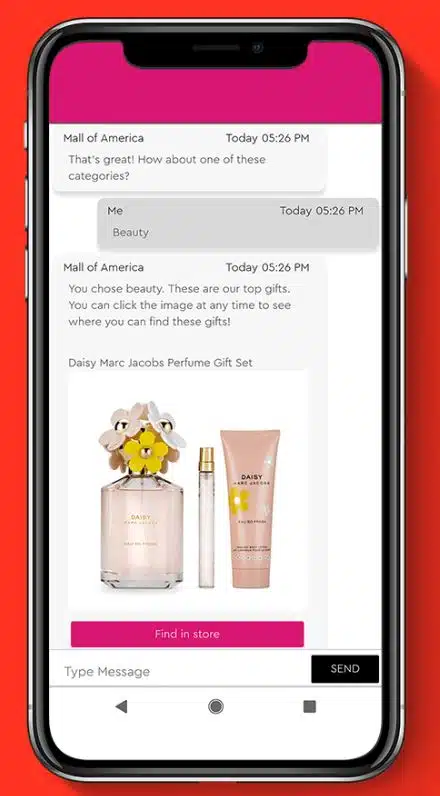
The retail and eCommerce sectors were among the first to adopt natural language processing (NLP) in the enterprise, particularly by way of chatbots and conversational interfaces. In this article, we cover three ways retailers can use NLP to automate business processes and offer the customer a better experience. We also give examples of AI vendors that offer this technology and describe their products. The NLP capabilities we discuss include:
- In-Store Robots: Programming in-store robots with NLP-based voice recognition technology for customer service.
- In-Store Virtual Assistants: Virtual avatars customers can interact with that could increase brand loyalty.
- Chat-based Product Recommendations: Using analytics to pick up on customer preferences and recommend products customers may want to buy within a chatbot window.
We begin our exploration of NLP in retail with conversational interfaces for in-store retail robots.
In-Store Robots
One of the most common uses of NLP in retail is in customer-facing conversational interfaces or chatbots. Retailers could apply chatbots to in-store touchscreen interfaces and robots to provide an interactive customer service experience. This automates some of the work human employees would have to do on top of their normal responsibilities.
One vendor that offers conversational interfaces to retailers is Cloudminds. The company offers a customer service robot called Pepper, which can purportedly field customer service questions via voice. Additionally, Cloudminds offers a virtual assistant called Cloudia, which can purportedly appear on various in-store touchscreen interfaces.
The video below demonstrates how a customer could interact with Pepper to return an item:
Cloudminds’ robots and virtual assistant could assist retailers by:
- Serving as a retail concierge and suggesting products based on customer profiles.
- Discerning the sentiment behind a customer’s question or word choice and accommodating their mood with more careful language. This is an indicator that their NLP algorithm is capable of sentiment analysis.
- Guiding users through technological interfaces they may not be familiar with. One example of this may be a self-checkout station at a grocery store.

In-Store Virtual Assistants
Some conversational interfaces in retail are attached to a computer-generated avatar to create a more personable virtual shopping assistant than a chatbot on a device. This could improve the customer’s relationship to a brand. A virtual assistant of this kind would use NLP for the same functions as other chatbots, such as Apple’s Siri. However, it would also need to signal when and how to move the virtual avatar based on the customer’s responses.
One vendor that offers this type of virtual assistant is twentybn. Their virtual assistant Millie can purportedly read a customer’s body language and gestures and use them to determine the sentiment behind a customer’s speech and their emotional state. Twentybn claims Millie enables the following capabilities for retailers:
- Customer service: Customers could ask Millie questions about individual products and upcoming sales. She could also explain product features to customers while they are examining them or trying them on.
- Personalized customer experience: Millie can purportedly discern the preferences of returning customers. The software may create customer profiles based on the customer’s name and appearance, which may necessarily involve machine vision.
- Inbound Marketing: For example, Millie can purportedly pose for selfies with potential customers and collect contact information in exchange.
The following video from twntybn give a demo of Millie:
Twentybn lists a case study on its website in which the company claims to have partnered with Soma Innovation Labs to conduct a live mobile customer acquisition activation at the AT&T SHAPE Expo. Soma claims to have used Millie to gain the attention of customers and invite them to join a virtual scavenger hunt event using the company’s mobile app.
The companies reported that over 500 people participated and 275 of them registered for an account.
Chat-based Product Recommendations
When coupled with predictive analytics, NLP-enabled conversational interfaces could also be used to recommend products to customers based on their preferences. If a customer asked, “which brands of milk is on sale,” the chatbot could recommend brands of milk that are both on sale and in-line with the customer’s preferences, perhaps recommending only 1% milk, for example.

Satisfi Labs offers a chatbot that purportedly has this capability, although the company does not explicitly state that its software uses predictive analytics.
Satisfi claims its chatbot comes with the following capabilities:
- Product recommendations: This purportedly enables the conversational interface to upsell customers, guide them through gift shopping, and answer product information questions more accurately.
- On-site wayfinding assistance: This may allow the mobile app to track the customer’s location within a brick and mortar store and help them find the items they need. If the store doesn’t change often, this may not require AI unless the customer’s request is very specific or is operated via voice.
- Replenishment and Package Tracking: This may include alerts when the retailer has restocked an item that a customer was looking for on their last visit. If the customer decided to order an item from the retailer’s eCommerce site because it was out of stock locally, the app can purportedly help the customer track the package. It’s unclear where the AI comes into play in this capability.
The following image from Satisfi Labs shows how a conversational interface could incorporate a gift shopping guide. The customer is using the Mall of America’s mobile app and searching for a gift in the beauty section:
Satisfi claims to have helped the official brand for the musical Wicked by launching a virtual assistant for the Wicked website and Facebook messenger account. Their facebook messenger account was also integrated with the Ticketmaster ticketing platform. Customers were able to use the virtual assistant to purchase tickets directly from the automated conversation. According to the case study, Wicked was able to sell tickets at rates reaching 20% higher than average and help approximately 90,000 visitors.
Header Image Credit: Muse by Clio







